01604 872774
 Email Maya here
Email Maya here
Here at St Andrew’s, our on-site, specialist multi-disciplinary teams work across Birmingham and Northampton to support older people with a mental health diagnosis or a neurodegenerative condition who also have complex physical health and mobility needs.
We recognise that within the context of mental healthcare, supporting older people requires specialist clinical and psychiatric knowledge, insight and compassion. We aim to support people in their rehabilitation so that they can return home or to a residential setting suitable to their on-going needs. For some of our patients who are unable to make this step our job is to ensure that we help them to maintain the best quality of life and support their end of life care with compassion in an environment that is comfortable and reassuring for them, their family and loved ones.
To discuss a referral into our Secure Older Adult Mental Health Services please contact our Admissions team on 0800 434 6690
Having nursed for 35 years, Damien Crossan, Nurse Manager on our forensic Older Adult ward in Birmingham, recognises the importance of relational security for patients and it's an approach that he emphasises with his nursing team:
"Relational security is central to all healthcare and particularly mental healthcare. It's a drum that I beat quite constantly with my staff group; it's getting to know people, getting to know thoughts, getting to know fears and being a comfortable ear and within mental health that's terribly important because sometimes people just want to say something, not necessarily want anything further than that and as long as they know they're heard you have given comfort."
Damien also acknowledges that within the context of older adult care, supporting end-of-life care is integral to the nursing team's approach;
"Death is a progression with an older adult service that must be addressed, and it opens up that complexity then of supporting patients' futures; knowing that everyone has a future but that it might be a limited future and what preparations they might want to make for that. So we speak to people about what they want and and who they want within their lives and whether perhaps they would like to renew some relationships".
"I also have to think about my team when we are planning end of life care because they too will be losing someone that they've worked with for some time and at St Andrew's we have very supportive staff networks."
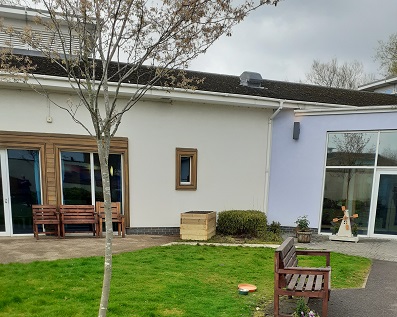 Adapting ward environments and meeting the specific healthcare and mobility needs of older people is something that Damien also talks about in his video below. Keen to encourage his patients' love of gardening but also recognising the need to keep people safe and integrate falls management, Damien told us about plans with the estates team to construct a series of raised flower beds. This spring the first of the flower beds has been completed allowing our older patients on Moor Green to access outdoors whilst remaining safe.
Adapting ward environments and meeting the specific healthcare and mobility needs of older people is something that Damien also talks about in his video below. Keen to encourage his patients' love of gardening but also recognising the need to keep people safe and integrate falls management, Damien told us about plans with the estates team to construct a series of raised flower beds. This spring the first of the flower beds has been completed allowing our older patients on Moor Green to access outdoors whilst remaining safe.
Image shows the first of the raised bed planters that are being built to allow for our older adult patients to garden safely.
Image shows the first of the raised beds recently built outside Moor Green ward to allow our older adult patients to garden safely.
Muthu Natarajan is Consultant Forensic Psychiatrist and Clinical Director for Neuropsychiatry services. In his video he discusses the considerations when supporting older adults and talks about our Lowther dementia hub, which he has been at the forefront of developing;
"The Lowther village was very much a critical part of our ability to deliver the best care for patients who are living with dementia...they are able to interlink with the community throughout their journey with dementia, and that's what we try to do, both in an inpatient setting, also patients who are on Mental Health Act sections and DoLS but also making sure that they have the least sort of possibility of feeling as though they are in an inpatient setting."
"When somebody comes to us, we carry out a comprehensive multidisciplinary assessment that is the basis of the care and treatment. An individual might require specific psychological therapies like reminiscence therapy, individual sessions to look at what the actual cognitive impairment is actually meaning for them on a day to day basis, we may look at life story work. We also look at what is the least restrictive approach to their management, so one of the key things we will look at is what activities and supports are going to help them through their journey, and that will include activities within the unit, but it also may include activities within our grounds and also further afield into the community. The third thing is obviously in terms of our medical support, and we have a full complement of doctors, a responsible clinician, a geriatrician who works alongside us and also our specialty doctors and the medical team who look at the treatments we're offering and making sure that is the most holistic approach to that individual's care."
Our older adult services draw from a range of specialisms within our MDT to treat complex mental health conditions whilst also supporting the physical healthcare needs that are a key consideration when supporting an older patient co-hort. Our Lead Occupational Therapist, Sarah Hayes explains some of the ways that we do this:
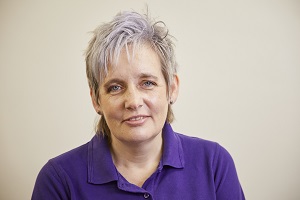 “As we get older we know that our bodies become less robust from a physical perspective and there are lots of barriers that our bodies give us to stop us from doing what it is that we want to do. So what we need to do as occupational therapists, particularly when working with those with the degenerative conditions such as dementia, is look at promoting or sustaining people’s level of ability for as long as possible and we do this by compensating and providing equipment for everyday living.
“As we get older we know that our bodies become less robust from a physical perspective and there are lots of barriers that our bodies give us to stop us from doing what it is that we want to do. So what we need to do as occupational therapists, particularly when working with those with the degenerative conditions such as dementia, is look at promoting or sustaining people’s level of ability for as long as possible and we do this by compensating and providing equipment for everyday living.
There is nothing more satisfying than assessing someone for a bespoke wheelchair and when you get them sitting in that wheelchair; you get them sitting at a table and their faces and their whole demeanour it changes because they can sit at a table and they can enjoy the meal that they have or they can enjoy even watching television, and I think that's where the greatest joy is, using equipment to be able to promote how somebody interacts with the world around them.”
With an on-site Consultant Geriatrician as part of the Northampton MDT we are able to closely monitor our older patient’s physical well-being and ensure that we pre-empt and proactively manage physical health issues with the aim of enhancing people’s mobility and quality of life, whilst reducing the need for acute hospital admissions. 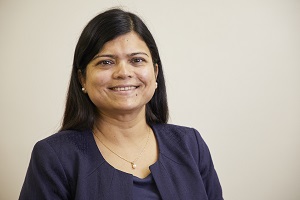
As a specialist Consultant, one of Parul’s key aims is to define a strategy for managing older people’s physical health and identifying their frailty:
“If we can identify that people are getting more frail, we can put something into practice early on, such as an exercise programme or a lifestyle change which may stop them deteriorating…and if there are no reversible factors, then we need to think about how we can make people more comfortable and involve them in decisions about their best interests." Parul Shah, Consultant Geriatrician
To find out more about our multi-disciplinary approach to working with older adults, watch out team videos below:
Where appropriate, discharge planning is put in place when we admit someone into both our secure and non-secure older adult services. On our forensic wards, like Cranford and Moor Green where Matthew and Anna are based, planning to support step-down to an environment of least restriction is key to the team’s approach. This involves building people’s access to and engagement in the community and supporting their activities of daily living, as Anna explains;
“One way the team support our older adult patients is by trying to promote independence as much as possible. So it’s our job to support people to do the basic things like; their laundry, making a drink, the skills that they will need to live independently”
Find out more about Anna's role and her plans to become a Mental Health Nurse in her video.
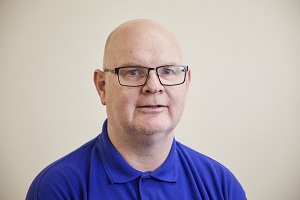 As a Clinical Nurse Lead, Matthew works closely with Occupational Therapists and Technical Instructors to ensure that patients have access to a full programme of activities which allow the team “to minimize risk but take positive risks regarding leave off the ward and sections.”
As a Clinical Nurse Lead, Matthew works closely with Occupational Therapists and Technical Instructors to ensure that patients have access to a full programme of activities which allow the team “to minimize risk but take positive risks regarding leave off the ward and sections.”
Cranford is based within our secure service, Willian Wake House, where on-site facilities include gyms, a swimming pool and heavy and light industry workshops, the extensive grounds also “enable us to really develop people's skills outside of a ward setting.”
David, is 81 and has vascular dementia and in his video he shares his enjoyment of the activities that take place on the ward;
“I do a lot of writing for the magazine they’ve got here, that is one of my things. The stories I write are true (ish) because you know I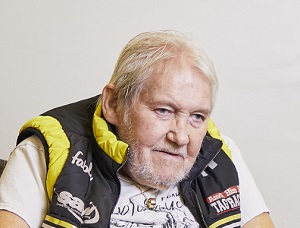 add a bit of fun to the stories. I like the music sessions where you can choose what music you like, and of course I’m the 50s era, rock ‘n roll. I used to go to the gym and the exercise bike and everything, just keep myself busy. You know and going out shopping, I’ve got an electric scooter, which was left to the ward. That’s why Bekki here; the story I wrote was about Bekki, trying to teach me on a scooter, when I was already a biker, and the scooter looked like a small motorbike; so I had to get my own back! (laughs)”
add a bit of fun to the stories. I like the music sessions where you can choose what music you like, and of course I’m the 50s era, rock ‘n roll. I used to go to the gym and the exercise bike and everything, just keep myself busy. You know and going out shopping, I’ve got an electric scooter, which was left to the ward. That’s why Bekki here; the story I wrote was about Bekki, trying to teach me on a scooter, when I was already a biker, and the scooter looked like a small motorbike; so I had to get my own back! (laughs)”
Extract from ‘The Geriatric Biker Rides Again, Biker Vs OT’ by David
‘Our ward was given a mobility scooter…and up steps the OT. Look at it, it’s a small bike! She, my mentor, is aware that I have been riding bikes since the mid 50s; here lies the problem, she’s heard of my reputation with the lads and our passion for speed! Lesson two I had to ride between the tables in the dining area – no problem – thumbs up! There was one table slightly higher and longer, I knew if I got down low on the bike, I could make it – so head down and go. NO! out steps my mentor – good brakes on this!’
Our social work team are a key part of the ward based specialist MDT across our Older Adult services.
Terry Henson recently retired but before she left she shared with us the crucial ways in which the social work team in our dementia hub support our older adult patients but also the patient’s family and carers.
“As a team we’re very much outward facing, so our nursing teams and our other colleagues they will work directly with the patient, but most of the work that we do is more with other people. So we link with outside agencies; that might be social services, it might be the care providers. We work a lot with families, supporting them because it's very, very distressing to live with somebody who has dementia….
for example, you may have a couple who have been married for 50 to 60 years and the husband develops dementia and can’t live at home anymore, so he goes into a care home locally, and then, because of his behaviour he’s moved to a hospital 100 miles away where it's really difficult to visit. So supporting her and reassuring her that the work that we do here means that hopefully we'll be able to enable her husband to come back to his home area is really important.”
Our wards for older people
The process of Dementia Care Mapping
DCM usually involves one or two trained observers (mappers) sitting in areas such as a lounge or dining area and observing what happens to patients over the course of a typical day. It is only used in public areas of care environments. Care staff and visitors carry on as normal and DCM should not interfere with this.
The focus of mapping is on the patient and their experience. What is recorded is how patients are responding and reacting to the environment and the people around them.
We implement mapping on the four wards in our Lowther dementia hub for people with dementia and Huntington's disease and also on Fenwick, our low secure ward for older women with mental illness.
Participating wards are mapped at least four times a year. The results are fed back to the care team so that care can be developed through multi-disciplinary action plans, and progress is monitored at service level.
Individualised treatment programmes incorporate the principles of the RAID (Reinforce Appropriate and Implode Disruptive) model – positive, meaningful engagement and reinforcement.
We use specialist age-appropriate interventions and tools, which address psychiatric symptoms, risk and offending behaviour.
Structured professional judgement tools, such as HCR-20 and RSVP, are used to assess risk on a regular basis and we use Dementia Care Mapping as an observational means to improve the quality of life and wellbeing of our patients. With a team of mappers, including Advanced Mappers we are able to routinely map on a quarterly basis complementing a holistic approach across services for older adults in our care.
Importantly for our patients their DCM data is presented on the BI Patient Portal and comes up on individual patient's dashboard, and it is therefore able to be included in ward round discussions and CPA reports.
Our older age adult service was the first to be awarded the RAID Centre of Excellence, recognising our environment of positive engagement.
Check now for the most up to date status
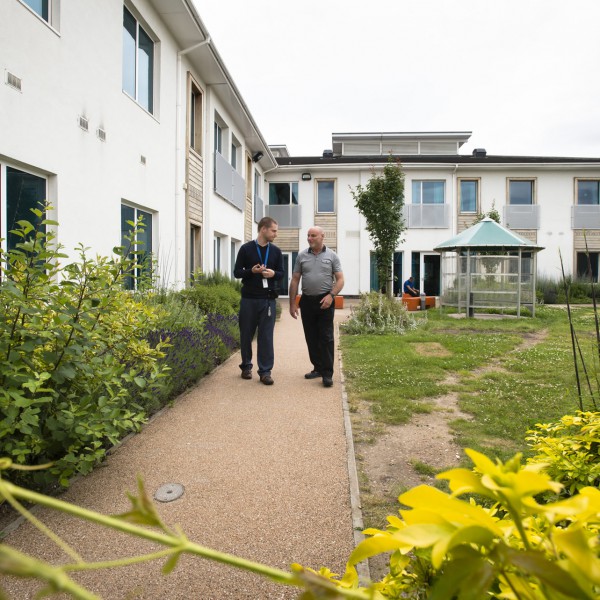
We provide a holistic approach to the assessment, treatment and rehabilitation of mental illness and physical health problems.
With input from over ten disciplines, our approach provides a range of individual and group therapies including index offence work, problematic alcohol and drug use, emotional coping skills and strategies, and cognitive stimulation therapy.
Specialist occupational therapy interventions develop important community skills prior to re-integration. In addition to psychology, psychiatry and physiotherapy inputs, individualised treatment aims to maintain and improve functional independence:
We offer dual-trained adult and mental health professionals who work alongside our dedicated physical health team with access to General Practitioner (GP), a geriatrician, a Practice Nurse, dental and podiatry services.
Our low secure Older Adult ward in Birmingham, Moor Green, is part of the West Midlands Reach Out partnership, prioritising care closer to home. Following admission we also work with Reach Out to define a patient's discharge plan and pathway.
As an older adult service some of our patients have palliative care needs and we work closely with the local hospice and Queen Elizabeth Hospital for any acute physical health needs, as Shazad Farooq, our Consultant Forensic Psychiatrist based in Birmingham explains:
"We have patients who have palliative care needs and it's about that joint care planning to make sure that patients are as comfortable as possible and that any needs are appropriately addressed."